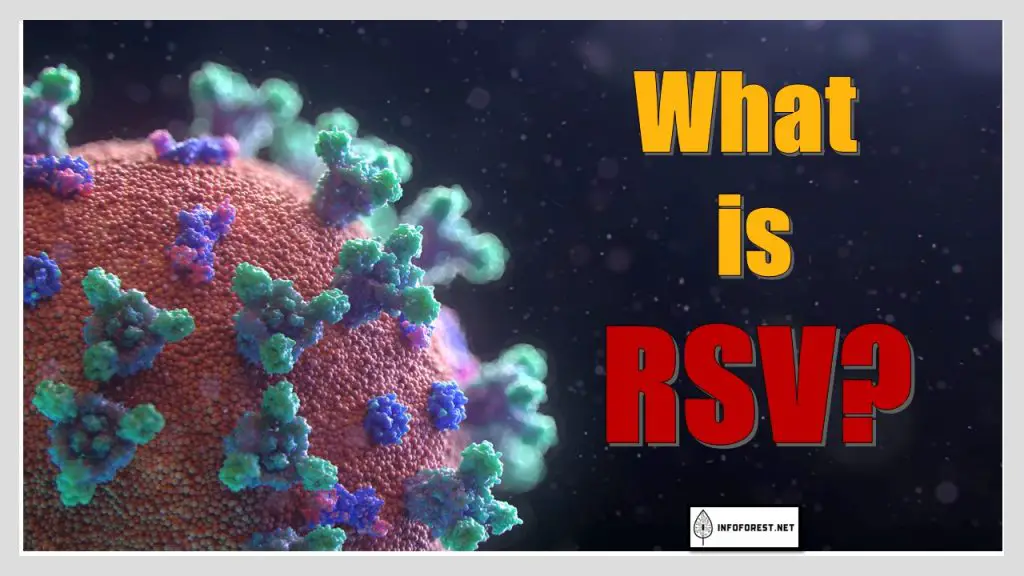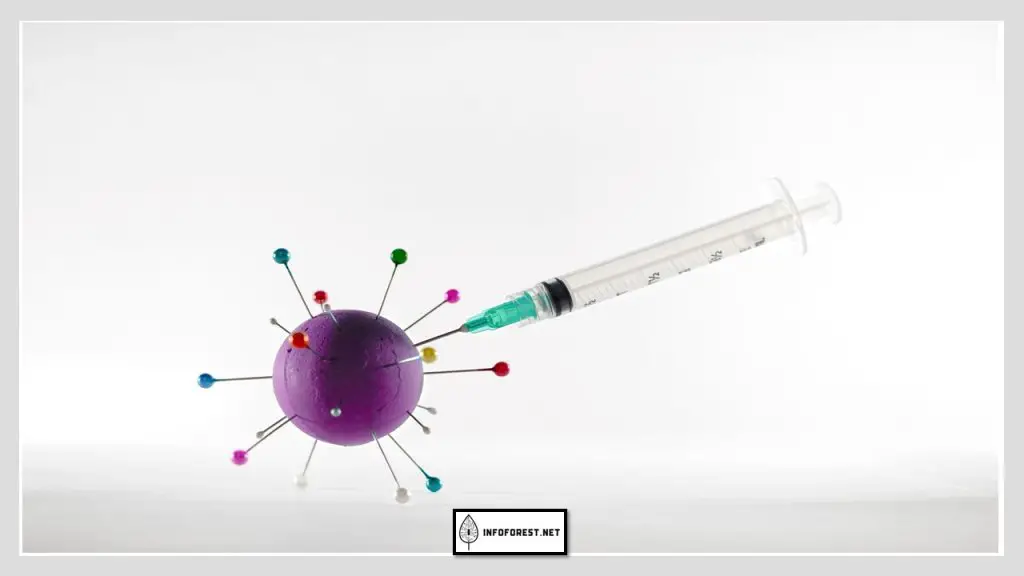
Respiratory Syncytial Virus is a highly contagious virus that primarily affects the respiratory system, causing respiratory infections. It is one of the most common causes of bronchiolitis (inflammation of the small airways in the lung) and pneumonia (lung infection) in infants and young children. However, it can also affect adults, particularly older adults with weakened immune systems. RSV is spread through the air when an infected person coughs or sneezes, or by touching a contaminated surface and then touching the face. Common symptoms of RSV infection include runny nose, cough, fever, and wheezing, which can range from mild to severe. In severe cases, RSV can lead to hospitalization, particularly in infants and young children. There is currently no specific treatment for RSV, but prompt medical attention can help manage symptoms and prevent complications.
Symptoms of RSV
The symptoms of Respiratory Syncytial Virus infection typically include:
- Runny nose
- Cough
- Low-grade fever
- Sneezing
- Body aches
- Reduced appetite
- Fatigue
- Wheezing (a high-pitched whistling sound when breathing, especially during exhalation)
- Rapid breathing
- Chest retractions (sucking in the skin between the ribs during breathing)
- Bluish color around the mouth or fingers (due to lack of oxygen)
In severe cases, Respiratory Syncytial Virus can lead to hospitalization, particularly in infants and young children, and can cause complications such as pneumonia, bronchiolitis, and respiratory failure. If you or your child has symptoms of RSV, it is important to seek medical attention promptly.
Causes of RSV
Respiratory Syncytial Virus is caused by a virus of the same name. It is highly contagious and spreads easily from person to person through respiratory droplets from coughing or sneezing, as well as by touching a contaminated surface and then touching the face.
Respiratory Syncytial Virus can infect people of all ages, but it is most dangerous for infants, young children, and older adults with weakened immune systems. Risk factors for severe Respiratory Syncytial Virus infections include premature birth, underlying lung or heart conditions, exposure to second-hand smoke, and a weakened immune system.
It is important to practice good hand hygiene, cover your mouth and nose when coughing or sneezing, and avoid close contact with individuals who have RSV or other respiratory infections to reduce the risk of RSV infection.

Risk factors for RSV
There are several risk factors for severe Respiratory Syncytial Virus infections, including:
- Age: Infants, young children, and older adults with weakened immune systems are at higher risk for severe RSV infections.
- Premature birth: Infants born prematurely are at a higher risk for severe RSV infections and related complications.
- Chronic medical conditions: Children and adults with underlying lung or heart conditions, such as asthma, cystic fibrosis, and heart disease, are at increased risk for severe RSV infections.
- Weak immune system: Individuals with weakened immune systems, such as those with HIV/AIDS or undergoing chemotherapy, are at higher risk for severe Respiratory Syncytial Virus infections.
- Exposure to second-hand smoke: Children who are regularly exposed to second-hand smoke are at increased risk for RSV infections and related complications.
- Crowded living conditions: People who live in crowded conditions, such as in daycare centers or nursing homes, are at increased risk for RSV infections.
It is important to take precautions to reduce the risk of Respiratory Syncytial Virus infection, such as practicing good hand hygiene, covering your mouth and nose when coughing or sneezing, and avoiding close contact with individuals who have RSV or other respiratory infections.
We also invite you not to miss our other popular articles such as:
Difference Between Rose Gold and Yellow Gold– ChatGPT–Difference between left and right Twix–Difference Between Eastern Time Zone and Central Time Zone–Difference Between Capitalism and Communism– Difference Between EST and EDT–How many weeks in a Year– Difference Between Evening and Afternoon – Democrat vs Republican
Complications
In severe cases, Respiratory Syncytial Virus infection can cause several complications, including:
- Bronchiolitis: This is the inflammation of the small airways in the lung, which can cause difficulty breathing.
- Pneumonia: RSV infection can cause pneumonia, which is an infection of the lung that can cause difficulty breathing, chest pain, and fever.
- Respiratory failure: In severe cases, RSV can cause respiratory failure, which is a condition in which the body is unable to get enough oxygen into the bloodstream.
- Asthma exacerbation: RSV infection can trigger asthma symptoms and make existing asthma worse.
- Congestive heart failure: RSV can cause fluid buildup in the lungs, which can lead to congestive heart failure.
- Reactive airway disease: RSV infection can cause reactive airway disease, which is a condition in which the airways become narrow and irritated in response to certain triggers.
It is important to seek prompt medical attention if you or your child has symptoms of RSV, as early treatment can help prevent or manage these complications.
Prevention
There are several measures that can help prevent Respiratory Syncytial Virus (RSV) infections:
- Practice good hygiene: Wash your hands regularly with soap and water, and avoid touching your face with contaminated hands.
- Cover your mouth and nose: Cover your mouth and nose when coughing or sneezing, and dispose of used tissues promptly.
- Avoid close contact with infected individuals: Avoid close contact with people who have RSV or other respiratory infections.
- Clean and disinfect frequently touched surfaces: Clean and disinfect frequently touched surfaces, such as toys, doorknobs, and countertops, to reduce the risk of RSV infection.
- Avoid smoking: Avoid exposure to second-hand smoke, as it can increase the risk of RSV infections and related complications.
- Get vaccinated: Some populations, such as healthcare workers, may benefit from RSV-specific vaccines.
- Seek prompt medical attention: If you or your child has symptoms of RSV, seek prompt medical attention to prevent or manage complications.
It is important to follow these preventive measures, especially during the RSV season, which typically occurs from November to April in the northern hemisphere.

Protective medication
Currently, there is no specific antiviral medication that is approved for the treatment of Respiratory Syncytial Virus (RSV) infections. The main focus of treatment is to relieve symptoms and prevent or manage complications.
In severe cases, supportive care may be necessary, such as supplemental oxygen, breathing treatments, and intravenous fluids. In some cases, hospitalization may be required to provide supportive care and monitor for complications.
There is a monthly RSV prophylaxis (palivizumab) that is approved for the prevention of severe RSV disease in certain high-risk populations, such as premature infants and children with underlying medical conditions.
It is important to discuss the risks and benefits of RSV prophylaxis with your healthcare provider, who can determine if it is appropriate for you or your child based on individual medical history and risk factors.
In addition to preventive measures and prompt medical care, there is ongoing research aimed at developing effective treatments and vaccines for RSV, with the goal of reducing the burden of this virus on individuals and society.
Most Viewed Articles
Conclusion
In conclusion, Respiratory Syncytial Virus (RSV) is a highly contagious virus that causes respiratory infections. It can cause severe complications, particularly in infants, young children, and older adults with weakened immune systems. Good hygiene practices, such as washing hands regularly, covering the mouth and nose when coughing or sneezing, and avoiding close contact with infected individuals, can help prevent RSV infections. If you or your child has symptoms of RSV, it is important to seek prompt medical attention to prevent or manage complications. By taking these preventive measures and seeking appropriate medical care, it is possible to reduce the risk of severe RSV infections and related complications.
We also invite you not to miss our other popular articles such as:
What Is Web 3.0–What is NFT–What is a Recession– What Is Bitcoin– What Is PayPal and How Does it Work – Kilometer vs Mile – How to get rid of hiccups What does TBH mean – What does NSFW mean – What does IG mean–What does CAP mean– What is normal blood pressure –What is the rarest blood type–Difference Between Hotel And Motel – Differences Between Chinese and Japanese and Difference Between Zip Code and Postal Code







